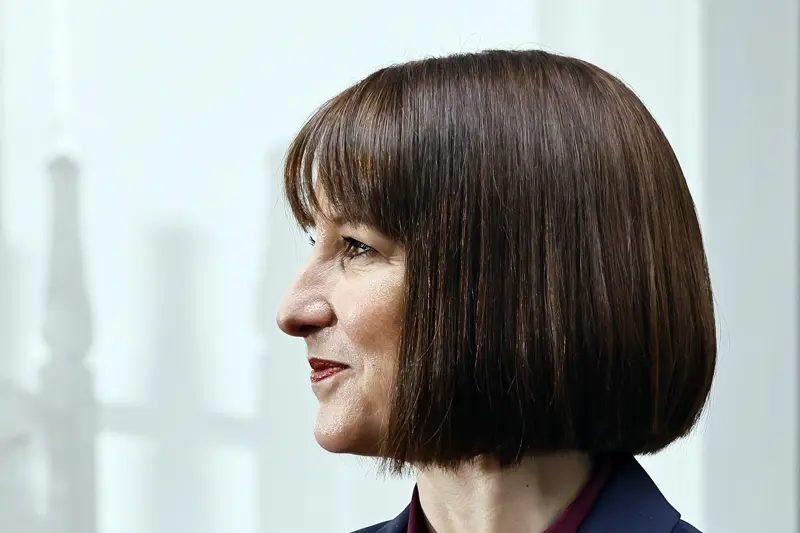- 13 June 2025
The government’s £113bn spending review, unveiled on 11 June 2025, aimed to reset the political narrative by showing where they are prioritising spending. The Chancellor framed the plan as a push for renewal across the UK, and only possible due to the tax revenue raised from her Autumn budget. With Reform polling high following their success in the local elections, Labour MPs will be hoping they now have positive stories to tell their constituents.
Often governments are accused of short termism for political gain. This was a longer term vision, with many of the gains not being realised for some years. The government will be hoping that the public feel enough of the benefits before the next election.
Unanswered questions and fiscal constraint
This multiyear plan is a calculated bet on investment-led growth. Is it credible? A cautious yes from the markets with the cost of gilts decreasing slightly. Much of the delivery promised depends on private investment and on the world being sufficiently calm to attract the levels of business investment needed. That is a big ask considering current geopolitics and the on again, off again tariff policy of the US government.
Given that uncertainty, the Chancellor has left very little room to manoeuvre within her self-imposed fiscal rules. Commentators continue to be sceptical that she will avoid further tax rises, or further spending cuts in the Autumn budget. The review also left certain questions unanswered including how Treasury will pay for any further increase in defence spending – with NATO expected to pressure for a 3.5% of GDP commitment - as well as the announced reversal of winter fuel payments and potential shift on the three child benefit limit.
What governance professionals want for businesses
Last year, our Bellwether survey of company secretaries told us clearly that companies wanted a government which was ‘steady and stable’ to allow for clear business planning. However, business confidence has decreased since then, depressing hoped for investment. Members’ views at that time were that the new government needed to prioritise greater investment in infrastructure, particularly energy, technology, transport, and improvements to public services. Among the announcements to be welcomed then were the commitments to long-term investment in research and development, clean energy, digital transformation, and transport.
Follow the money
The government’s pledge to deliver £86 billion in public R&D over the review period has been well received, although some commentators have questioned whether it is sufficiently ambitious to deliver the desired increase in growth and productivity when compared to other countries. Energy received major funding for nuclear and fusion energy, alongside upgrades to grid and carbon capture facility. Transport will rise by an average of 3.9% over the review period to fund various rail, bus, and tram projects, although overall the department faces large operational cuts of 5%.
The ambition to make HMRC a digital-first organisation with £1.6bn to do so, has the potential to reduce unnecessary reporting burdens on businesses—an objective consistently supported by governance leaders.
Other major funding for technology included £10bn for the NHS through upgraded digital infrastructure; and £2bn to back the AI Action Plan including support for quantum computing, digital skills and 5G expansion.
Alongside health, defence gained a 2.5% increase year on year as expected. Other key capital investments included £39bn for new homes over the next ten years and £7bn funding for new prisons.
Guarded optimism and lingering doubts
Paul Johnson of the Institute for Fiscal Studies described the review as 'not austerity' but warned that eight departments face real-terms cuts. The money followed the Chancellor’s long-stated priorities and the Government’s missions. While genuinely big sums are to be spent, allowing for increases in priority areas, he drew attention to the £140 billion of extra borrowing forecast over the same period and the cost of servicing that debt. The focus must now shift to delivery and avoiding the all-too-common project over-runs.
Concern over servicing debt and execution of the spending commitments was also mentioned by the IMF in their detailed reaction, however they have upgraded their forecast for UK GDP growth for 2025, citing the Spending Review’s emphasis on infrastructure investment and long-term productivity gains.
The CBI cautiously welcomed the review, particularly the commitments to clean energy and R&D, but warned that uncertainty around the Growth and Skills Levy and high energy costs continue to dampen that business confidence.
The construction industry, big winners from the budget, nevertheless echoed those CBI concerns over skills shortages and questioned delivery capacity.
The NHS Confederation welcomed the funding uplift for health, but warned it falls short of the 4% annual increase needed to restore services.
Unions welcomed investment in infrastructure and public services. However, they criticised the review for lacking overall vision and ambition on fair pay and job security due to the real-term cuts in many departments, warning of future action to defend members’ jobs and push for properly funded public services.
From announcements to execution
Paul Johnson of the Institute for Fiscal Studies described the review as 'not austerity' but warned that eight departments face real-terms cuts. The money followed the Chancellor’s long-stated priorities and the Government’s missions. While genuinely big sums are to be spent, allowing for increases in priority areas, he drew attention to the £140 billion of extra borrowing forecast over the same period and the cost of servicing that debt. The focus must now shift to delivery and avoiding the all-too-common project over-runs.
Blog by
David Mortimer, Head of External Affairs at CGIUKI
dmortimer@cgi.org.uk



